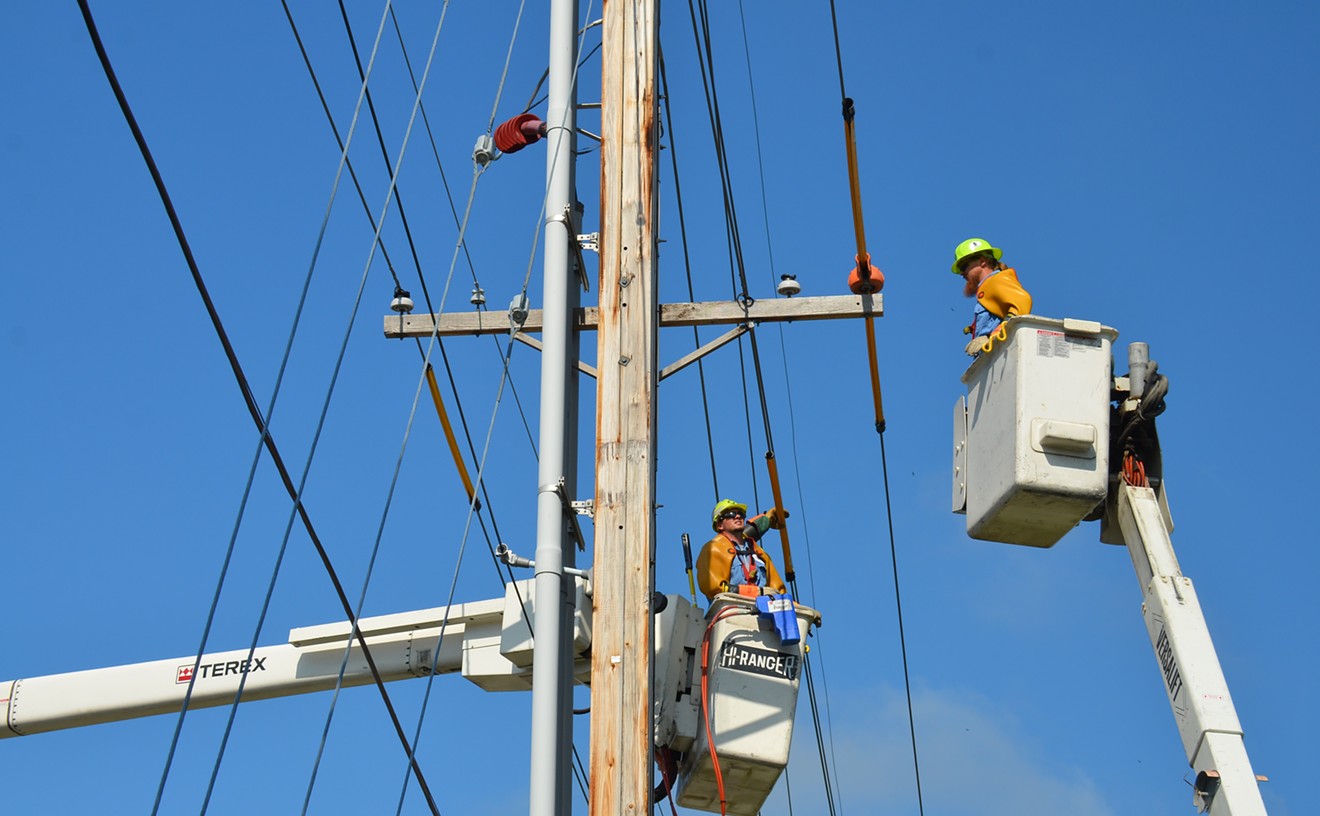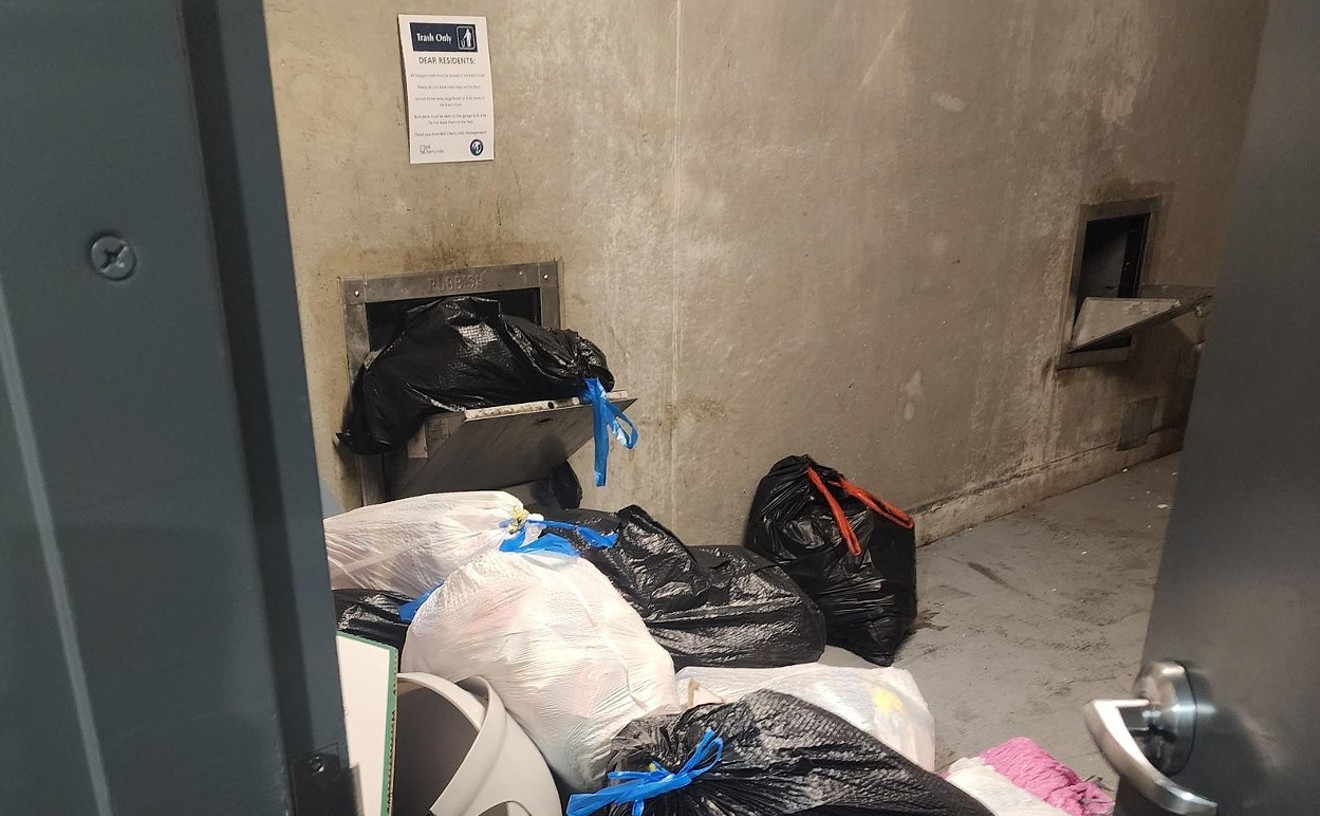Dan Haley, president of the Colorado Oil and Gas Association, wanted a simple answer to his question, a question that gave the keynote luncheon of the group’s annual conference its title: “Can You Still Drill for Oil in a Blue State?”
His guest, Governor Jared Polis, was reluctant to give the simple “Yes” Haley may have wanted, but he made his feelings on the matter clear.
“It’s a silly question,” Polis told Haley on stage at COGA’s Energy Summit, held at the Colorado Convention Center on Wednesday, August 28. “It’s like asking, ‘Can you build a solar farm in a red state?’ It just doesn’t make any sense. Energy isn’t inherently political, it’s inherently economic.”
From an economic perspective, these continue to be boom times for Colorado’s oil and gas industry. Drillers shattered records by producing nearly 180 million barrels of crude oil last year and are on pace to meet or exceed that total in 2019, according to data from the Energy Information Administration. The state’s largest operator, Anadarko Petroleum, was just bought by fossil fuel giant Occidental in a $55 billion acquisition.
Still, as Haley repeatedly told Polis during a nearly hour-long conversation on Wednesday, many in the industry remain “frustrated” and “very concerned” about the direction in which Colorado is heading.
“A lot of our employees are beginning to feel nervous about their jobs in Colorado,” Haley said.
Under Polis, who took office in January, Colorado Democrats have enacted some of the state’s most significant energy reforms in decades. Senate Bill 181, signed into law by Polis in April, instructed oil and gas regulators to put a higher priority on health and safety considerations in permitting, and for the first time granted local governments the ability to regulate industry operations within their borders.
“I believe, personally, that the level of government that’s closest to the people usually makes the best decisions,” said Polis of the law’s so-called local control provisions. “In general, it’s the problem-solvers on the ground who should be empowered to have a say in how their community develops.”
Industry groups fiercely opposed SB 181, repeatedly comparing it to environmental activists’ failed 2018 “safer setbacks” measure, Proposition 112, and claiming that the bill amounted to a “backdoor ban.”
But so far, there’s little evidence that the new law has substantially impacted the industry’s long-term outlook in Colorado; hundreds of drilling permits have been approved since its passage, and operators have continued to make substantial investments in development and complete multibillion-dollar mergers and acquisitions. Production totals are projected to continue to rise in the coming years, reaching nearly 250 million barrels in 2024, an analytics firm told the Denver Post earlier this month.
The Colorado Oil and Gas Conservation Commission, the state agency that oversees drilling, has begun to make a long list of regulatory changes required by SB 181, a process that's expected to last up to two years. Environmental groups have repeatedly called on COGCC regulators to impose a moratorium on new permit approvals until this rulemaking is complete, and to develop a plan to phase out drilling altogether as Colorado and other governments around the world move to transition away from fossil fuels to cleaner forms of energy.
Pressed by Haley on the future of oil and gas extraction in Colorado, Polis repeatedly downplayed the importance of state policymaking, which he said is far less impactful on the industry than the ups and downs of the global energy market. It’s an answer that’s likely to satisfy neither the industry, which wants a commitment to its long-term place in Colorado’s economy, nor climate activists, who want to see the state begin to restrict the supply of oil and gas.
“As long as commodity prices are good, you’re going to have a good business," Polis said. “It has nothing to do with me, and nothing to do with our state politics. It has to do with supply and demand.”
Alongside SB 181, Colorado Democrats passed a slate of legislation this year incentivizing renewable electricity generation and electric vehicle adoption, and Polis acknowledged on Wednesday that so-called demand-side policies like these will affect the energy market in the coming decades. Over 90 percent of global greenhouse gas emissions come from the combustion of fossil fuels, and scientists have warned that the world must achieve net-zero emissions by 2050 in order to avert the worst impacts of climate change.
"If people are moving toward electric vehicles, and there's more wind power in twenty years, is there less demand for natural gas and gasoline? Yeah," Polis said.
Though he made few specific predictions about the future of oil and gas drilling in Colorado, Polis was able to reassure a roomful of industry executives in other ways, at least for a moment.
“I think what a lot of people want to hear — people want to feel like they’re valued, and their jobs are valued,” Haley told the governor as the luncheon wrapped up. “That they’re wanted in this state. For a long time, and especially this year, a lot of us have felt like we’re not.”
“Your jobs are valued, and you’re an important part of the diversity of our state,” Polis replied, prompting applause from the crowd.
[
{
"name": "Air - MediumRectangle - Inline Content - Mobile Display Size",
"component": "12017618",
"insertPoint": "2",
"requiredCountToDisplay": "2"
},{
"name": "Editor Picks",
"component": "17242653",
"insertPoint": "4",
"requiredCountToDisplay": "1"
},{
"name": "Inline Links",
"component": "18838239",
"insertPoint": "8th",
"startingPoint": 8,
"requiredCountToDisplay": "7",
"maxInsertions": 25
},{
"name": "Air - MediumRectangle - Combo - Inline Content",
"component": "17261320",
"insertPoint": "8th",
"startingPoint": 8,
"requiredCountToDisplay": "7",
"maxInsertions": 25
},{
"name": "Inline Links",
"component": "18838239",
"insertPoint": "8th",
"startingPoint": 12,
"requiredCountToDisplay": "11",
"maxInsertions": 25
},{
"name": "Air - Leaderboard Tower - Combo - Inline Content",
"component": "17261321",
"insertPoint": "8th",
"startingPoint": 12,
"requiredCountToDisplay": "11",
"maxInsertions": 25
}
]












